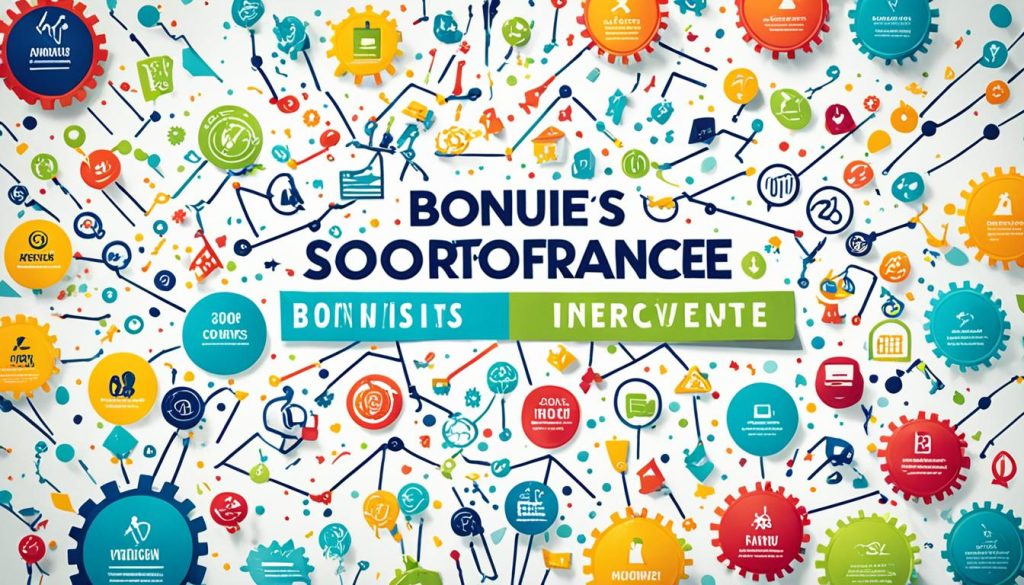Finding motivation to do a good job is essential for personal satisfaction and professional success. Whether you’re working on a project, completing daily tasks, or striving towards long-term goals, understanding what drives you can make a significant difference in your performance and overall job satisfaction.
In this blog, we’ll explore the various factors that can motivate you to do a good job. From intrinsic motivators like a sense of accomplishment and personal growth to extrinsic motivators such as recognition and rewards, we’ll delve into the psychology behind motivation and provide practical tips on how to stay motivated in your job. Whether you’re looking to boost your productivity, enhance your job performance, or simply find more fulfilment in your work, this blog will offer insights and strategies to help you stay motivated and do your best work.
What Motivates You to Do a Good Job?
When it comes to workplace motivation, there are two main types that drive individuals to excel in their jobs: intrinsic and extrinsic motivators. Understanding these motivators and their impact on job satisfaction is essential for creating a productive and fulfilling work environment.
Intrinsic Job Motivators
Intrinsic motivators are internal factors that come from within an individual. These motivators revolve around personal satisfaction, a sense of accomplishment, and opportunities for growth. People who are intrinsically motivated find joy in the work itself and are driven by the desire to master new skills and overcome challenges.
Extrinsic Job Motivators
Extrinsic motivators, on the other hand, are external rewards that individuals receive as a result of their work. These motivators include recognition, promotions, financial incentives, and other tangible benefits. Extrinsic motivators serve as external validation and can spur employees to perform well in anticipation of these rewards.
Aside from intrinsic and extrinsic motivators, there are other factors that contribute to workplace satisfaction and overall motivation:
- A positive work culture that emphasizes teamwork, collaboration, and support
- A healthy work-life balance that allows employees to maintain a fulfilling personal life alongside their professional responsibilities
- Opportunities for learning and development, such as training programs and professional growth initiatives
One powerful motivator in the workplace is the performance appraisal system. Performance appraisals not only provide employees with feedback on their work, but also recognition and rewards for a job well done. When conducted effectively, performance appraisals can boost motivation, encourage continuous improvement, and enhance job satisfaction.
Overall, understanding the different types of motivation and workplace satisfaction factors allows organizations to design strategies that foster an environment where employees feel valued, motivated, and empowered to perform at their best.
Understanding Employee Engagement Strategies
Employee engagement strategies are crucial for creating a motivating work environment and driving job performance. Organizations implement various strategies to ensure that employees feel motivated, valued, and empowered in their roles. These strategies encompass a range of elements that contribute to a positive work culture and enhanced job satisfaction.
One essential aspect of employee engagement strategies is the establishment of clear goals and expectations. When employees understand what is expected of them and have a clear direction to work towards, they are more likely to feel motivated and perform at their best. Clear goals provide a sense of purpose and enable employees to align their efforts with organizational objectives.
Regular feedback and recognition are also key components of successful employee engagement strategies. By providing constructive feedback and acknowledging employees’ contributions, organizations can create a supportive work environment where employees feel valued and appreciated. This feedback helps individuals understand their strengths and areas for improvement, allowing them to continuously grow and develop.
Another important element of employee engagement strategies is offering opportunities for skill development. Organizations that invest in their employees’ growth through training, workshops, and professional development programs demonstrate a commitment to their workforce’s success. These opportunities not only enhance employees’ skills and knowledge but also show that the organization values their personal and professional growth.
Work-life balance is a critical consideration in employee engagement strategies. Organizations that prioritize work-life balance enable employees to maintain a healthy equilibrium between their professional and personal lives. This balance reduces stress, enhances job satisfaction, and ultimately boosts productivity and performance.
Creating a positive work culture is fundamental to employee engagement strategies. Organizations that foster an inclusive, collaborative, and supportive work environment attract and retain top talent. A positive work culture promotes teamwork, encourages innovation, and enhances overall job satisfaction.
Job performance incentives, such as performance-based bonuses or rewards, are effective motivators within employee engagement strategies. Rewards that recognize and appreciate employees’ outstanding performance reinforce their efforts and drive continued excellence. These incentives serve as tangible reminders of the organization’s appreciation for employees’ hard work and dedication.
Employee Engagement Strategies:
- Establishing clear goals and expectations
- Providing regular feedback and recognition
- Offering opportunities for skill development
- Promoting work-life balance
- Fostering a positive work culture
- Implementing job performance incentives

Understanding and implementing effective employee engagement strategies can significantly impact job performance and overall organizational success. By prioritizing employee motivation, organizations create an environment where individuals are empowered, inspired, and motivated to excel in their roles.
The Impact of Motivation on Job Performance
Motivation plays a crucial role in job performance. When employees are motivated, they are more likely to go above and beyond in their work, meet and exceed goals, and contribute positively to the organization. Factors like job performance incentives and workplace satisfaction can significantly impact motivation levels and, in turn, job performance. Employees who feel valued, supported, and rewarded for their efforts are more likely to be motivated to do a good job.
Job performance incentives are designed to encourage employees to strive for excellence and achieve outstanding results. These incentives can take various forms, such as bonuses, promotions, or recognition programs. By offering tangible rewards for exceptional performance, organizations create a sense of motivation and drive among their employees.
On the other hand, workplace satisfaction factors also play a vital role in motivating employees to perform their best. A positive work environment, effective communication, work-life balance, and opportunities for growth and development contribute to overall job satisfaction. When employees feel satisfied in their workplace, they are more likely to be motivated and engaged in their work.
Here’s a breakdown of the impact of motivation on job performance:
| Motivation Factors | Impact on Job Performance |
|---|---|
| Job Performance Incentives | Provide tangible rewards that drive employees to excel and achieve outstanding results. |
| Workplace Satisfaction Factors | Create a positive work environment that fosters motivation, engagement, and a sense of fulfillment. |
By combining both job performance incentives and workplace satisfaction factors, organizations can create a synergistic effect that maximizes employee motivation and boosts overall job performance. When employees are rewarded for their hard work and efforts, while also enjoying a satisfying work environment, they are more likely to be highly motivated and driven to succeed.

In the next section, we will explore tips for self-motivation at work, providing actionable strategies to enhance personal drive and job satisfaction.
Tips for Self-Motivation at Work
Self-motivation is a critical skill to develop in order to maintain high levels of productivity and job satisfaction. Here are some strategies to self motivate and ensure you are doing a great job at work:
- Set Clear Goals: Establishing clear and achievable goals provides direction and focus. Break down bigger goals into smaller, manageable milestones to track progress.
- Break Tasks into Smaller Chunks: Large tasks can be overwhelming. Break them down into smaller, actionable steps to make them more manageable.
- Create a Positive Work Environment: Surround yourself with positivity. Decorate your workspace with motivational quotes or items that inspire you.
- Celebrate Small Wins: Acknowledge and celebrate your accomplishments along the way. This boosts confidence and keeps motivation levels high.
- Seek Feedback and Learning Opportunities: Actively seek feedback from colleagues or mentors to improve your skills. Continuously learning and growing enhances motivation.
- Find Intrinsic Motivation: Connect your work to personal values and interests. Understanding how your tasks contribute to something meaningful to you can be a strong motivational factor.
- Cultivate a Growth Mindset: Embrace challenges and view them as opportunities for growth. See setbacks as learning experiences rather than failures.
- Maintain a Healthy Work-Life Balance: Take breaks, prioritize self-care, and strive for a balance between work and personal life to prevent burnout and maintain motivation.

By implementing these strategies, you can boost your self-motivation, leading to increased job satisfaction and a greater ability to consistently perform at your best.
| Tips for Self-Motivation at Work | Benefits |
|---|---|
| Set Clear Goals | Provides direction and focus |
| Break Tasks into Smaller Chunks | Makes complex projects more manageable |
| Create a Positive Work Environment | Boosts morale and motivation |
| Celebrate Small Wins | Increases confidence and motivation |
| Seek Feedback and Learning Opportunities | Improves skills and fosters personal growth |
| Find Intrinsic Motivation | Increases job satisfaction and personal fulfillment |
| Cultivate a Growth Mindset | Embraces challenges and promotes continuous improvement |
| Maintain a Healthy Work-Life Balance | Prevents burnout and supports overall well-being |
Overcoming Challenges in Motivation
Even with the best intentions, there may be times when motivation levels dip. It is crucial to recognize and address these challenges to maintain good job performance. Here are some effective strategies for overcoming challenges in motivation:
- Revisit and adjust goals: Take the time to reassess your goals and make any necessary adjustments. This ensures that your objectives remain aligned with your current motivations and aspirations.
- Seek support from peers or mentors: Reach out to trusted colleagues or mentors who can provide guidance and encouragement. Their insights and experiences can help reignite your motivation and inspire new ideas.
- Find inspiration from role models or success stories: Look to individuals who have achieved success in your field. Their stories can serve as a source of inspiration and motivation, reminding you of what is possible with dedication and persistence.
- Practice self-care and stress management: Take care of your physical and mental well-being. Engage in activities that help you relax and rejuvenate, such as exercise, meditation, or pursuing hobbies outside of work. Prioritizing self-care helps foster a positive mindset and sustainable motivation.
- Focus on the bigger picture or long-term goals: Remind yourself of the larger purpose behind your work. Reflect on the impact you can make and the personal growth opportunities it presents. By focusing on long-term goals, you can find renewed motivation and a sense of purpose.
Additionally, understanding what motivates you in life can provide valuable insights into maintaining motivation in the workplace. By aligning your career aspirations with your personal values and passions, you can cultivate a deeper sense of motivation and fulfillment.

| Challenges | Strategies for Overcoming Challenges |
|---|---|
| Dip in motivation levels | Revisit and adjust goals Seek support from peers or mentors Find inspiration from role models or success stories Practice self-care and stress management Focus on the bigger picture or long-term goals |
By implementing these strategies and understanding what motivates you personally, you can overcome challenges in motivation and maintain a high level of job performance.
Conclusion
Motivation is essential for driving individuals to perform well in their jobs. Whether it’s through intrinsic or extrinsic motivators, a positive work culture, performance appraisals, or self-motivation strategies, understanding what motivates you personally is crucial for job satisfaction and success.
Organizations can create an environment where employees feel motivated, valued, and empowered by implementing effective employee engagement strategies. This includes providing job performance incentives, such as rewards and recognition, and considering workplace satisfaction factors like work-life balance and opportunities for growth.
Additionally, individuals can enhance their own motivation by self-motivating techniques. This includes setting clear goals, breaking tasks into manageable chunks, creating a positive work environment, seeking feedback and learning opportunities, and aligning work with personal values and interests.
By prioritizing motivation and implementing strategies to foster it, both individuals and organizations can achieve higher levels of job performance and satisfaction.
FAQs
What are the types of motivation in the workplace?
There are two types of motivation: intrinsic and extrinsic. Intrinsic motivators are internal factors like personal satisfaction, a sense of accomplishment, and the opportunity for growth. Extrinsic motivators are external rewards such as recognition, promotions, and financial incentives.
What are employee engagement strategies?
Employee engagement strategies are implemented by organizations to create a motivating work environment and increase job performance. These strategies include creating clear goals and expectations, providing regular feedback and recognition, offering opportunities for skill development, promoting work-life balance, and fostering a positive work culture.
How does motivation impact job performance?
When employees are motivated, they are more likely to go above and beyond in their work, meet and exceed goals, and contribute positively to the organization. Factors like job performance incentives and workplace satisfaction can significantly impact motivation levels and, in turn, job performance.
What are some tips for self-motivation at work?
Strategies for self-motivation include setting clear goals, breaking tasks into smaller, manageable chunks, creating a positive work environment, celebrating small wins, seeking feedback and learning opportunities, and finding intrinsic motivation by aligning work with personal values and interests. Cultivating a growth mindset and maintaining a healthy work-life balance are also helpful.
How can we overcome challenges in motivation?
Strategies for overcoming challenges in motivation include revisiting goals and adjusting them if needed, seeking support from peers or mentors, finding inspiration from role models or success stories, practicing self-care and stress management, and focusing on the bigger picture or long-term goals. Understanding what motivates you in life can also provide insights into maintaining motivation in the workplace.
What is the importance of job performance incentives and workplace satisfaction?
Job performance incentives and workplace satisfaction are crucial for motivating employees to do a good job. Employees who feel valued, supported, and rewarded for their efforts are more likely to be motivated and satisfied in their work. This, in turn, leads to improved job performance and overall success for both the employee and the organization.





